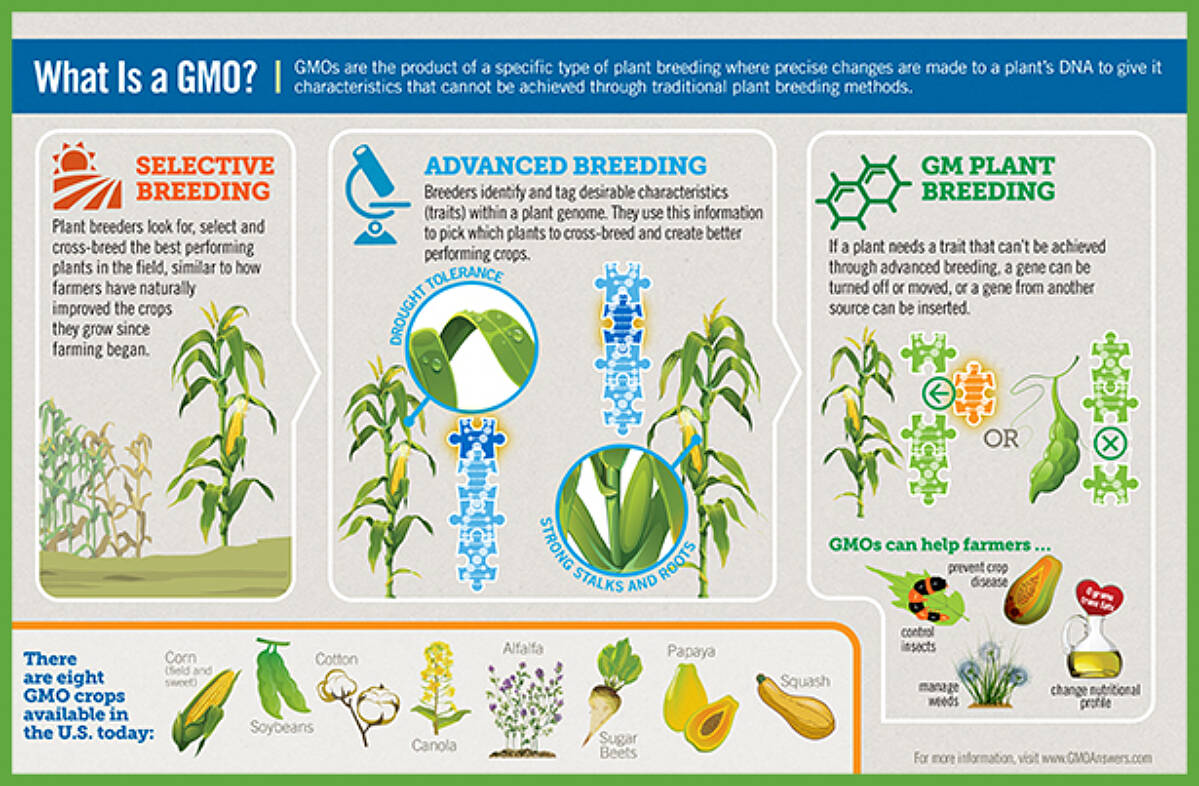Biotechnology
Issue Overview
Biotechnology has proven to be an important tool for sustainability and food security. It helps farmers grow more food while improving the environment. For example, biotechnology reduces the use of costly inputs and improves weed management, allowing farmers to reduce tillage for better soil, water and air quality. Today, roughly 90 percent of corn, cotton and soybeans grown in the U.S. have been improved through biotechnology, and farmers are choosing biotech traits when growing other crops such as alfalfa, sugarbeets and canola.
Despite rapid adoption by farmers and a strong scientific consensus that biotechnology does not pose health and environmental risks, regulatory burdens are slowing research and innovation of new biotech traits and are starting to reduce U.S. farmers’ international competitive advantage. In addition, activist groups routinely threaten the availability of new traits by blocking science-based regulatory decisions, filing lawsuits and advocating for labeling mandates.
GM crops require less water and fewer chemical applications than conventional crops, and they are better able to survive drought, weeds, and insects.

photo credit: GMOanswers.com
For more resources and information, visit GMOanswers.com.
Our Position
Access to Biotechnology
U.S. agriculture will maintain its competitive advantage in world markets only if we continue to support innovations in technology and grasp opportunities for future biotech products.
To improve regulation of biotechnology, Farm Bureau supports:
- USDA leading evaluations and approvals to move products to the marketplace in a timely manner;
- Agencies continuing to serve their respective roles in providing unbiased, scientifically-based evaluations;
- Agencies evaluating the regulatory approval process for possible improvements; and
- Initiatives to assist the research, development and regulatory review of biotech for specialty crops.
Farm Bureau encourages efforts to educate farmers to be good stewards of biotech crops to preserve access and marketability.
Labeling of Biotechnology Products
Farm Bureau believes agricultural products grown using approved biotechnology should not be subject to mandatory labeling. We support existing FDA labeling policies and oppose state policies on biotech labeling, identification, use and availability.
On July 29, 2016 the president signed S. 764, the National Bioengineered Food Disclosure Standard, into law. While not perfect, S. 764 was a compromise that Farm Bureau endorsed. The law creates a uniform standard for the disclosure of ingredients derived from bioengineering and allows food companies to provide that information through an on-package statement, symbol or electronic disclosure. It also created a strong federal preemption provision to protect interstate commerce and prevent state-by-state labeling laws and was effective on the date of enactment. USDA has two years to develop the disclosure standards and Farm Bureau has been an active participant in the rulemaking process.
International Biotechnology Standards
Farm Bureau supports active involvement and leadership by the U.S. government in the development of international standards for biotechnology, including harmonization of regulatory standards, testing and LLP policies.
Resources
This resource can help set the record straight on GMOs, to correct misinformation and show why biotechnology is so important to agriculture.
Defending an efficient, science-based regulatory process – Since 1986, the Coordinated Framework for Regulation of Biotechnology has successfully governed how the Department of Agriculture (USDA), the Food and Drug Administration (FDA) and the Environmental Protection Agency (EPA) work together to regulate new biotech products. In recent years, however, the process has become unpredictable and the timeline for reviewing new products has increased dramatically due to overlapping regulatory responsibilities, a lack of inter-agency coordination, the looming threat of activist lawsuits that drain agency resources and efforts to introduce socioeconomic criteria into regulatory decisions.
Improving coexistence and protecting property rights – Coexistence refers to the concurrent use of diverse cropping methods, including organic, conventional and modern biotechnology. Coexistence is most effective when it facilitates farmers’ ability to choose a particular cropping method, along with the associated responsibility and production practices needed to maintain crop integrity, without conflicting with property rights of other farmers. Efforts to educate farmers about effective stewardship and good neighborly communication can help to strengthen coexistence. However, some groups have advocated for establishing heavy-handed coexistence policies that would impose costly requirements for farmers of biotech crops, such as mandatory stewardship practices and the creation of indemnity funds to compensate non-biotech farmers for the unintended presence of biotech material. These policy proposals contradict the traditional principles of value-added and identity-preserved agriculture, and go beyond what is justified by science to regulate the use of biotechnology and influence markets based on commercial concerns.
Opposing mandatory labeling – FDA’s longstanding policy on biotech food labeling states: “FDA has no basis for concluding that bioengineered foods differ from other foods in any meaningful or uniform way, or that, as a class, foods developed by the new techniques present any or greater safety concern than foods developed by traditional plant breeding.” The world’s top credible scientific authorities—including the United Nations Food and Agriculture Organization, the World Health Organization, the National Research Council of the National Academies of Sciences, the American Medical Association and the American Dietetic Association—have all concluded that foods with biotech-derived ingredients pose no more risk than any other food. Still, there are significant efforts to require labeling of foods with biotech ingredients, regardless of scientific evidence. Each year, anti-biotechnology groups attempt to pass mandatory labeling laws in several states through statute or referendum. Mandatory labels would mislead consumers about the safety of biotechnology, erode the credibility of FDA and discourage consumer acceptance of new, beneficial technologies. Farm Bureau has opposed mandatory labeling efforts at the federal and state levels. Promoting harmonization of international standards – Improving global market access and reducing trade disruptions can have enormous economic benefits for U.S. agricultural exports. Reducing asynchrony in the scientific standards, timeline and data requirements that different countries use to regulate products can improve market access.
TAGS
Top Issues
VIEW ALL